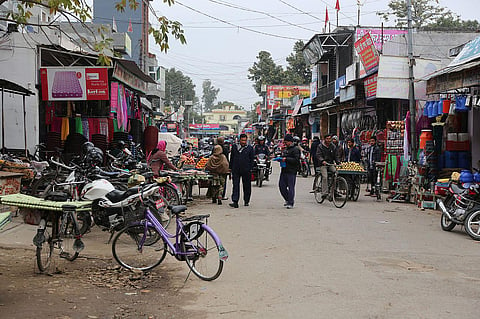

DEHRADUN: Traders at border areas in Uttarakhand who largely depend on Nepal are staring at an uncertain future due to the ongoing rift with the neighbouring country.
Banbasa, a border town at Indo-Nepal border which is located about 330 km away from Dehradun, is an entry point for those going to Nepal from Champawat after crossing a bridge over Sharda river.
Shankar Lal Verma, a Banbasa-based trader and state secretary of Uttarakhand Vyapar Mandal said, "The tension between Indian and Nepal is going to hit us hard. We have over 80% of customers from the other side of the border and only about 20% from this side. I hope the tensions get resolved soon."
Traders added that business has gone down to 5% of what they used to have. Traders from Nepal used to mainly buy vegetables, ration items, hardware, cloth, and cosmetics.
There are around 550 traders in Banbasa who have traditional trade relations with their counterparts in Kanchanpur, Nepal.
After the tensions in Indo-Nepal relations, the Indian traders are majorly concerned about their business which largely depends on their customers from Nepal.
Responding to the queries related to the matter, the Uttarakhand government officials said that they are aware of the issues faced by the traders in Banbasa.
Madan Kaushik, state cabinet minister and state government spokesperson, said, "I hope the governments of the two countries will resolve the matter soon. The state government can try to address the issue of the traders."
Apart from this, pharmaceutical industry owners in Uttarakhand claimed that prices of raw material for production of medicines have increased by up to 30%, which could result in costlier medicines. This comes amidst on going border tensions with China.
At present, there are over 100 pharmaceutical manufacturers operating from State Industrial Development Corporation of Uttarakhand Limited (SIDCUL) areas in Haridwar and Rudrapur. Most of the raw material for the pharmaceutical industry is imported from China because of the lower cost than locally available salts, say industrialists.